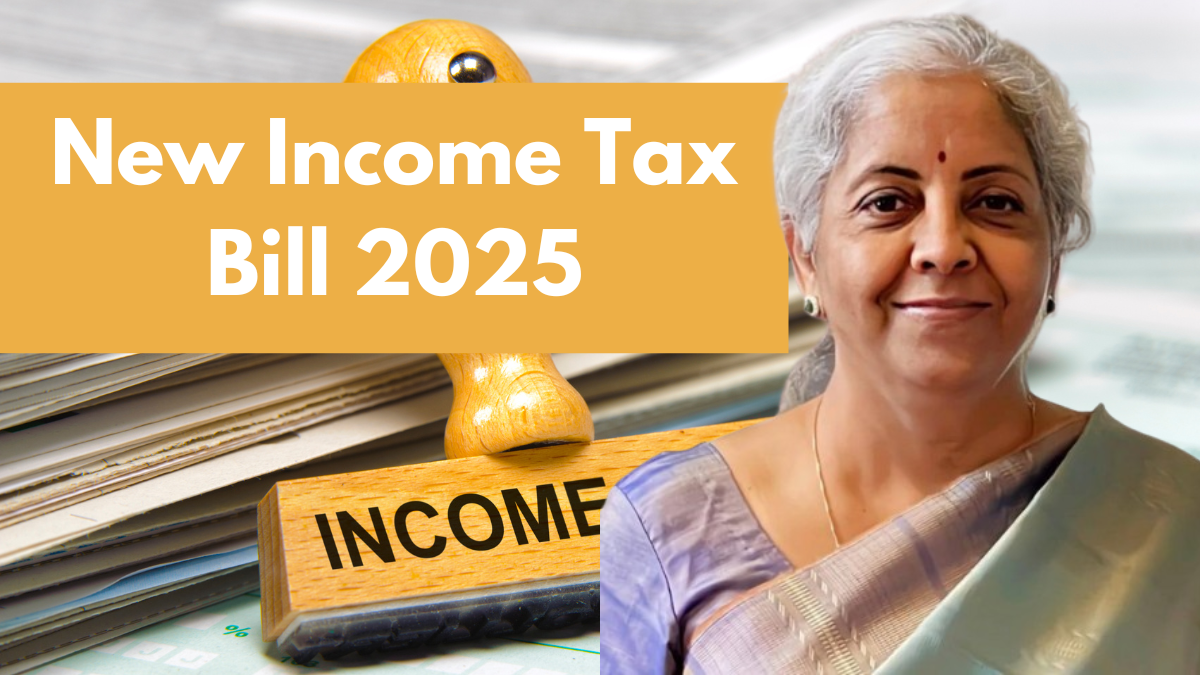The Union Cabinet has recently approved the New Income Tax Bill 2025, a significant reform aimed at simplifying the language of tax regulations while ensuring no additional tax burden on individuals. This legislation, passed on February 7, 2025, replaces the Income Tax Act of 1961, a law that governed direct taxation for over six decades. The objective of this reform is to enhance clarity and ease of understanding by eliminating lengthy and complex tax provisions without altering the actual tax liabilities. This new tax code is expected to modernize the tax framework, improve compliance, and promote transparency in the taxation system.

Key Highlights of the New Income Tax Bill 2025
| Detail | Information |
|---|---|
| Approved Date | February 7, 2025 |
| Implemented By | Union Cabinet Minister Nirmala Sitharaman |
| Purpose | To simplify the language of tax laws without changing tax rates |
| Replaces | The Income Tax Act of 1961 |
| Applicable Financial Year | 2025-26 onward |
| Focus | Streamlining tax provisions, reducing litigation, and making tax compliance easier |
Understanding the New Income Tax Bill 2025
What is the New Income Tax Bill 2025?
The New Income Tax Bill 2025 is a legislative reform introduced by the Indian government to replace the Income Tax Act of 1961. The main objective is to simplify tax laws by making the language more accessible, reducing ambiguities, and promoting ease of compliance. The government has made it clear that this bill is not meant to alter tax slabs or increase the tax burden but rather to make taxation more taxpayer-friendly.
Why Was the New Tax Bill Introduced?
Over the years, the tax framework in India has become increasingly complex due to amendments and additions. The Income Tax Act of 1961, which had been in place for more than six decades, contained legal jargon and long-winded provisions that often led to confusion. The 2025 Tax Bill aims to address these issues by simplifying tax regulations while maintaining the existing tax structure.
Key Features of the New Tax Bill
| Feature | Details |
|---|---|
| Simplified Tax Language | Eliminates long and complex legal jargon for easier comprehension. |
| No Change in Tax Rates | The bill does not impose any additional tax burden on individuals or businesses. |
| Taxpayer-Friendly Provisions | Focuses on reducing litigation, penalties, and tax-related disputes. |
| Digital Integration | Encourages paperless tax assessments to reduce human intervention and corruption. |
| Reduction in Offenses & Penalties | Aims to streamline penalties and offences to make tax compliance less burdensome. |
Impact of the New Income Tax Bill 2025
How Will It Affect Individuals?
- Easier Compliance: Taxpayers will find it simpler to understand and comply with tax laws due to the improved language structure.
- No Additional Tax Burden: The bill does not introduce new taxes or change existing tax rates.
- Digitalization of Tax Processes: The introduction of paperless tax assessments will reduce errors and increase efficiency.
- Lower Litigation Risks: Clearer tax laws mean fewer disputes and legal complications for taxpayers.
How Will It Benefit Businesses?
- Fewer Regulatory Hurdles: Simplified tax provisions will ensure that businesses, particularly startups and MSMEs, face fewer obstacles in tax compliance.
- Greater Transparency: Digitalized processes and reduced human intervention will minimize corruption and streamline tax filing.
- Enhanced Ease of Doing Business: With a more straightforward tax framework, businesses will have a clearer understanding of their financial obligations.
Expectations from the New Tax Bill
1. Simplified Tax Structure
The bill aims to make the tax system more accessible by reducing the complexity of tax laws and cutting the length of tax provisions by nearly half.
2. Enhanced Digitalization
A major focus of the bill is digital transformation. The government plans to introduce paperless tax filing, automated assessments, and AI-driven scrutiny processes. This will reduce human interference and increase efficiency, ensuring transparency in tax administration.
3. Flexibility in Tax Relief Measures
Unlike before, where major tax reliefs were linked to budget announcements, the new bill allows provisions to be modified periodically. This means tax deduction limits can be updated without waiting for an annual budget.
4. Reduced Penalties for Non-Compliance
Taxpayers who make minor errors will not face excessive penalties, as the bill proposes a more lenient approach towards first-time non-compliance cases.
5. Stricter Measures Against Tax Evasion
While the bill aims to reduce unnecessary scrutiny, strict measures will still be enforced in cases of deliberate tax evasion and fraudulent activities.
Conclusion
The New Income Tax Bill 2025 marks a significant step towards simplifying India’s tax system. By replacing the Income Tax Act of 1961, it removes outdated provisions and ensures that tax laws are more accessible to individuals and businesses alike. With a strong focus on clarity, digitalization, and taxpayer convenience, this reform is expected to enhance compliance, reduce disputes, and foster a more efficient tax ecosystem. While tax rates remain unchanged, the ease of understanding and compliance is set to improve significantly, making the taxation process smoother and more transparent for all.
Frequently Asked Questions (FAQs)
1. Will my income tax rates change under the New Tax Bill?
No, the bill only simplifies the language of tax laws and does not introduce any changes to existing tax rates or slabs.
2. When will the new tax bill be implemented?
The bill is applicable for the financial year 2025-26 and will continue until 2026-27, with potential revisions in the future.
3. How does this bill help individual taxpayers?
It makes tax laws easier to understand, reduces the scope for disputes, encourages digital tax filing, and removes unnecessary legal complexities.
4. Will businesses be affected by the new tax bill?
Yes, businesses will benefit from fewer regulatory hurdles, digital integration, and a more transparent taxation system.
5. Does the new bill reduce penalties?
Yes, the bill introduces provisions to reduce penalties and make the tax system more taxpayer-friendly, especially for minor non-compliance issues.
6. How does digitalization impact tax filing?
The shift towards paperless tax assessments will enhance transparency, reduce manual errors, and minimize human interference, ultimately lowering corruption and delays.
For More Information Click Here
